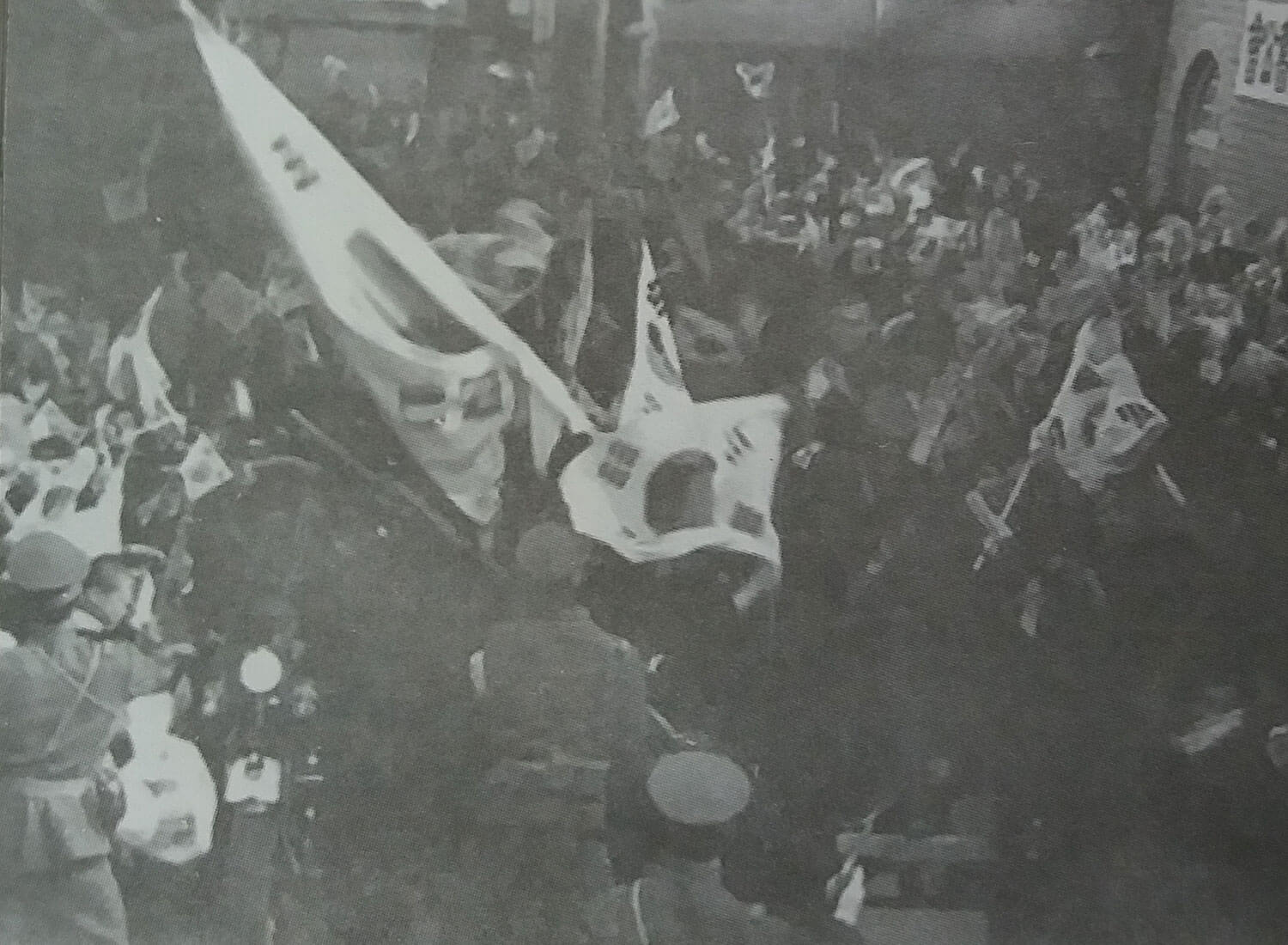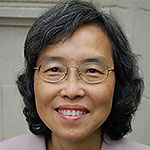
This year marks the centenary of the March 1st Movement of Korean protest against Japanese colonialism. Thirty-three religious leaders, among them 16 Christians, issued a Korean Declaration of Independence that sparked a nationwide protest. About 2 million people took part in the protests, and thousands were killed and injured. The March 1st Movement became an important symbol of resistance against Japan, which ruled the country from 1910-1945. The icon of the movement was a high school girl named Yu Kwansun, who was arrested, imprisoned, and tortured for her leadership role in the demonstrations and ultimately died in prison.
Several months later on May 4, students in Beijing took to the streets to protest against the Treaty of Versailles, agreed upon at the Paris Peace Conference to end World War I. The Allied Powers decided to transform German rights over China’s Shandong peninsula to Japan, instead of returning these rights to China. Protests soon broke out in many cities, and protesters denounced Western imperialism and the Chinese government’s weakness in protecting its territorial integrity. Workers went on strike to fight against exploitation. The May Fourth Movement criticized feudalistic and Confucian values and advocated learning from the West — especially democracy and science — to strengthen China to face foreign powers.
The centenary of these two protest movements prompted me to reflect on the impact of Asian histories in shaping the identities and memories of Asians and Asian Americans in the U.S. Although Asian Americans have been lumped together as one racial and ethnic group, we can trace our origins to different national cultures and histories. It is also important to recognize that some of the Asian countries have been at war with one another at one time or the other.
To honor the memory of the protesters in Korea and China 100 years ago, we must denounce political and military aggressions of all forms and work for justice, peace, and reconciliation. It would be a mistake to use the centenary to incite anti-Japanese sentiment and evoke a blind patriotism. We cannot forget the suffering of many Koreans, Chinese, and Southeast Asians under Japanese colonialism and military aggression. At the same time, we remember many Japanese people paid a heavy price when their country was under the Emperor’s military rule. In order to form alliances, we must not limit our imagination to the history of the nation-states, but pay attention to the people’s history, especially the history of pain and suffering under imperialism and militarism across nations.

The centenary also provides an occasion to look at U.S. history, especially its role in East Asian politics in the early 20th century. In 1918, President Woodrow Wilson issued the Fourteen Points, which were principles for peace to be used in peace negotiations to end World War I. Among these principles was the principle that in determining sovereignty questions and territorial claims, the interests of the populations concerned had to be taken into consideration. Wilson’s Fourteen Points inspired Korean leaders to fight for independence from Japan. However, at the Paris Peace Conference in January 1919, Koreans were not permitted to attend and their demand for independence was ignored. The U.S. government did not challenge Japan’s continued colonization of Korea, as the U.S. had colonies of its own in the Philippines and the Pacific. The U.S. and other Allied Powers also did not honor the demands of China to return the rights of Shandong. As Japan rose to dominance, the U.S. competed with Japan for political and military hegemony in the region. After the Pearl Harbor attack, the U.S. declared war against Japan. Some 120,000 Japanese American were dislocated and forced to live in internment camps. To end the war, the U.S. dropped atomic bombs in Hiroshima and Nagasaki that caused hundreds of thousands of civilian casualties.
Relations between the U.S. and East Asian countries continued to be tense in the second half of the 20th and early 21st century, particularly seen in the following: the Korean War (1950-53), the Cold War and containment of China, the competition with Japan in industries and trade, the labeling of Korea as belonging to the “axis of evil”, and the current trade war with China. Today, the U.S. has formed strategic security alliances with Japan and South Korea to guard against the rise of China and a nuclearizing North Korea. The so-called pivot to Asia as a U.S. military strategy means that the Asia Pacific will be a focal point of contention, just as the U.S. withdraws troops from the Middle East.
As history has taught us, U.S. relations with Asian countries has direct impact on the perception and acceptance of Asian Americans in the U.S. The color-metaphor “yellow peril” has been used to reinforce racism and xenophobia. Chinese American Vincent Chen was beaten to death in 1982 because he was mistaken to be Japanese, when the Japanese auto industry successfully competed in the U.S. market. In the past several presidential elections, competition with China has been a pointed issue and provided the subtext for President Trump’s campaign slogan “Make America Great Again”.
As Asian Americans, we have always been suspected of our loyalty — loyalty to the U.S. or to our country of origin. How do we look at the political tensions and turmoil between the U.S. and Asian countries? As people of faith, what do the Bible and the Christian tradition tell us about God’s action in history? Does God take sides, and if so, what side is God on?
The Bible reveals a God who has a preferential option for the poor and the oppressed. God formed a covenantal relationship with the Hebrew people and has remained steadfast through the ups and downs of their history. God called Moses to bring the people out of Egypt and take refuge in the land of Canaan. The Hebrew people were constantly reminded to treat the aliens, widows, and the poor among them with justice because they were once oppressed. The prophet Micah exhorted them to “do justice, and to love kindness, and to walk humbly with God” (6:8). They were also asked to observe Jubilee, which meant debt release and freedom of slaves and prisoners and the land was to lie fallow.

The Hebrew people were no strangers to living among mighty empires. They had lived under the shadows of Egyptian, Assyrian, Babylonian, Persian, Greek, and Roman empires. They experienced the tumultuous history of migration, a divided kingdom, war and violence, exile, diaspora, captivity, displacement, dispossession, and the destruction of their temples. It was through this painful history that they experienced God as just, righteous, and standing on the side of the downtrodden. The God they worshipped was not tied to one people or a temple or holy site. God judged the nations and brought forth justice and righteousness and God’s name was to be made known and glorified in all nations. And this same God continues to be standing on the side of the oppressed today.
It is no coincidence that several Korean biblical scholars, such as Cyrus H.S. Moon, saw parallels between the liberation struggle of the people in the Hebrew Bible and the struggles of Korean people. In the Exodus story, the Hebrew people were treated as slaves, and under Moses, the subjugated people revolted against their oppressors and sought liberation and freedom. Moon saw similarities in the Korean people, who suffered national humiliation and loss of identity under Japanese imperial rule. The Korean people revolted against foreign oppression again and again, such as in the March 1st Movement. Both the Hebrews and Koreans became conscious of their bondage and actively sought their own liberation.
As we commemorate the people’s movements against colonialism, oppression, and militarism, we also recall several generations of people before us who worked for peace and supported the victims and the marginalized. During the internment of Japanese Americans, Christian leaders offered guidance and comfort for the people. Amid the Civil Rights movement, Japanese American activist Yuri Kochiyama worked side by side with Malcolm X. Asian American communities rallied together after Vincent Chen’s murder and demanded justice. Several Asian American Christian leaders spoke out condemning racism and police profiling and brutality after Ferguson.
Peace is not a romanticized state absent of conflicts. In the Sermon on the Mount, Jesus said: “Blessed are the peacemakers, for they will be called children of God” (Matt. 5:9). Jesus’s words were spoken during a time when the Jewish people were subjugated to Roman imperial rule. Under subjugation and domination, peacemaking was not an easy thing to do. Jesus subverted the mighty Roman Empire by calling disciples and forming alternative communities. His preaching, healing, and ministry broke social taboos and crossed boundaries, leading to his death on Golgotha. But there was hope; death was not the end, and the resurrection of Jesus pointed to the grace and power of God. As followers of Jesus, let us bring light and hope to people who feel hopeless and to situations that seem dire. As Paul wrote to the Corinthians, “your faith may rest not on human wisdom but on the power of God” (I Cor. 2:5).

Kwok Pui-lan has served as William F. Cole Professor of Christian Theology and Spirituality at Episcopal Divinity School. Her publications include “Postcolonial Imagination and Feminist Theology”; “Introducing Asian Feminist Theology”; and “Discovering the Bible in the Non-Biblical World”. She is also the coeditor of “Off the Menu: Asian and Asian North American Women’s Religion and Theology”.